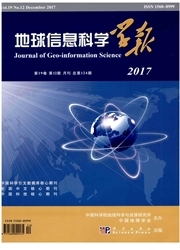

 中文摘要:
中文摘要:
数据密集型的地学研究离不开数据资源和信息平台的支撑,因此,实施地球系统科学数据共享具有重大意义。早期地球系统科学数据共享服务主要以政府行为为主,集中数据汇交,存在数据服务负载不均衡、数据整合模式单一、数据服务效果不明显等突出问题。随着Web 2.0理念的提出,以及云计算等技术的出现,数据共享模式发生了巨大的变化。本文提出基于云计算的地球系统科学数据共享概念模型。通过提供基础设施即服务(IaaS)、数据资源即服务(DaaS),以及数据功能即服务(SaaS)实现共享服务模式的转变,将死板的数据转为灵活的服务。在“数据云”中,用户既是数据的使用者也是数据资源的提供者,通过提供数据发布、数据需求发布、数据发现与共享、需求发现与反馈等功能,解决数据共享中“用户-数据”之间的矛盾,并激励普通科研工作者贡献自己的数据,保障数据资源有效、可持续整合。最后,构建了原型系统用于验证该框架,形成了一个“人人都是数据的提供者,人人都是数据的使用者”的数据共享服务环境。
 英文摘要:
英文摘要:
Geoscience is a science of data-intensive research, whose process is dependent on the data resources and information platform. Especially for earth system science, in order to understand how the earth runs as a whole and to reveal the driving force of global environmental change, it is urgent to implement data sharing. Ear-ly geoscience data sharing services are primarily of data concentration and archiving by the government behav-iors, which has many prominent problems such as imbalanced load of data service, simplex pattern of integrated data, indistinctive effect of data services, etc. We aimed to set up a new geoscience research environment that ev-ery researcher is both the user and the contributor of geoscience resources. With the present of Web2.0 and the emergence of cloud computing technology, data sharing mode has undertaken great changes. This paper present-ed the concept model, function structure and technology system of earth system science data sharing based on cloud computing, and built a prototype system of“geoscience data sharing services based on cloud service”. This system embodies a transition of service mode by Infrastructure as a Service (IaaS), Data Resources as a Ser-vice (DaaS) and Data Software as a Service (SaaS). It ensures data security and realizes the Data Access Load Balancing based on the master-slave data storage technology. In the cloud service system of data sharing environ-ment for geosciences research, everyone is both data producer and user. It can solve the data sharing contradic-tion between“user and data”by providing data publishing, data needs publishing, data finding/sharing, data needs finding/feedback and other functions. Finally, through the study of earth system science based on cloud computing and the key technique of data sharing we have built a prototype system to validate the framework. The cloud service system can improve the sharing and utilization of resources, enhance the on-demand service mode and provide an extensive and compatible scie
 同期刊论文项目
同期刊论文项目
 同项目期刊论文
同项目期刊论文
 期刊信息
期刊信息
